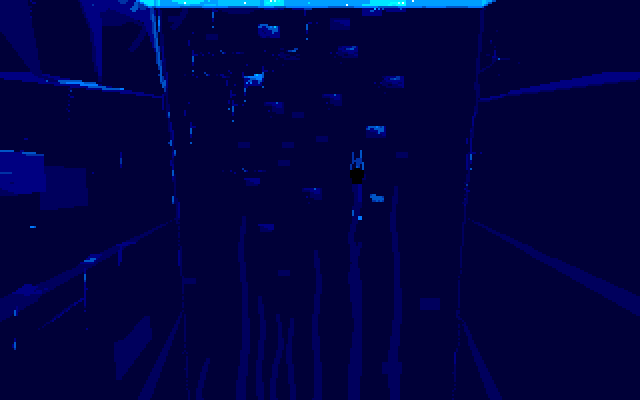Delphine Desires!
Another World was released by Delphine Software back in 1991 and is nothing less than a legendary 16-bit game. In fact, it was groundbreaking! The gameplay feels like a cross between Prince of Persia with dollops of Dragon's Lair thrown in. This creation is a unique combination that Eric Chahi should be proud of.
Everyone already knows this game well. I have wanted to feature Another World for ages but, it's kinda like trying to review Dungeon Master or Captain Blood. What's the point? So I figured I'd base this feature on its aesthetics to, hopefully, persuade you ST Nutters to replay it :)
Our adventure begins with an intro depicting how our unfortunate hero, Lester Chaykin, managed to find himself in a strange world. The intro is good, but we're not talking Race Drivin' standards - as the elevator scene is boring! However, it's definitely worth watching. I like the sound effects, especially on the Atari STe!!
Let's check out a few photos to prove why you should consider replaying this...

You made it!! Hang on, what's that in the background?

You know you're in for a great adventure the moment this beast appears!!

We didn't last long before getting captured and banged up with another fella. I hope he's friendly!!

You made it!! Hang on, what's that in the background?

You know you're in for a great adventure the moment this beast appears!!

We didn't last long before getting captured and banged up with another fella. I hope he's friendly!!
B-movie aesthetics
Eric created incredible backgrounds for each area using abstract artistry with a bleak, futuristic style, which is very eerie. Characters use chunky polygons - superbly animated. Just watch Lester run and jump. However, he's a gullible chap, so I dare you not to smile as he holds up his hand at the end of the first stage!!
Attention to detail like that is impressive. Like on the first screen with the beast on a distant ledge. It's rather ominous - especially when it sees you and turns around!! Also, watching the prisoners working in the background when you're trapped in jail is amazing. And what about when Lester flops to the ground after a slug slashes his leg? Brilliant stuff that proves Another World is one of the best-animated games of the era?
Attention to detail like that is impressive. Like on the first screen with the beast on a distant ledge. It's rather ominous - especially when it sees you and turns around!! Also, watching the prisoners working in the background when you're trapped in jail is amazing. And what about when Lester flops to the ground after a slug slashes his leg? Brilliant stuff that proves Another World is one of the best-animated games of the era?
Consider the lower resolution and limitations of older computers. Now check out the artwork...
Sadly, there is no obvious way to escape. Or is there...
CryptO'pinion
This is a classic adventure that I have loved and hated in equal measure. Sure, I marvel at the aesthetics, but it's the gameplay that matters. That can be cruel and unforgiving, making you scream out loud. I mean something as simple as the droopy slugs on the first level - yet they killed me many times. Furious, yet addictive!!
However, there can be no denying that it ranks high in the Hall of Fame. I hope you enjoyed this short recap, and I hope you guys download and have a few games. This is a truly wonderful game in every respect.
However, there can be no denying that it ranks high in the Hall of Fame. I hope you enjoyed this short recap, and I hope you guys download and have a few games. This is a truly wonderful game in every respect.
Grab some of Eric Chahi's cartoon-style adventure on a floppy disk or for your hard drive.

















